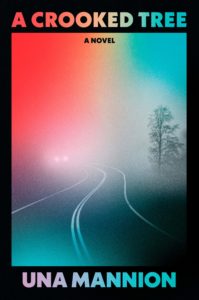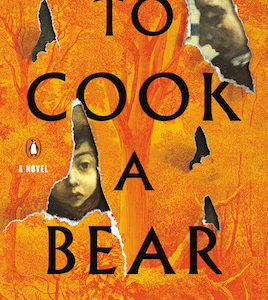In the story of the Trojan War we are told that before the Greeks sailed to sack Troy, the goddess Artemis stilled the winds and demanded the life of a child. According to myth, that child was Iphigenia, first born of Agamemnon, the army general leading the thousand Greek ships. He sacrifices her so that the winds will blow and his warriors can sail and make war. In the retelling of the myth, there are competing versions: one where Iphigenia begs for her life but is gagged and hung like a goat before her throat is slit, and another where she courageously offers to sacrifice herself, absolving her father of moral responsibility, desperately holding onto the heroic values the adults around her have abandoned.
Iphigenia’s ghost haunts the tale. When we read the heroics of the Greek soldiers in Homer’s Illiad, we remember how they bayed for her blood, a child and one of their own. We imagine her terror as the adult world that should have provided refuge demanded her life. We think of her moral resolution, walking to her death, as she tries to compensate for these failures and, how, before they ever committed the atrocities inside the walls of Troy, the Greek army had already lost moral track, were already corrupted by war and how Iphigenia is the measure of this.
I keep hearing incarnations of the Iphigenia story (and her mother’s) in the books I’ve been reading this past year. Children witness parental and social failure and compensate for them, survive, raise each other, raise themselves, try to understand, try to get justice and, more often than not, forgive. This motif, children trying to fix the wrongs of the adult world, preoccupied me when writing A Crooked Tree. The children in the story, five siblings, no longer trust the adult world or the protection it might offer. At the start of the novel the fifteen-year-old narrator’s younger sister is put out of the car on a dark road. She is subsequently attacked and, rather than turning to parents or police, the children turn to each other, seeking their own kind of justice. Throughout the novel I found myself returning to this idea, the pain children are willing to shoulder to shield their parents and what they will do for one another.
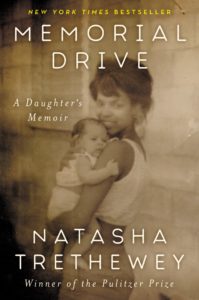
Natasha Trethewey, Memorial Drive
In Natasha Trethewey’s devastating memoir, Memorial Drive, an account of her mother’s murder by her ex-husband in 1985, her child self at the age of ten, like Iphigenia, bears crushing responsibility. “You are in the fifth grade the first time you hear your mother being beaten,” she writes in the second person, capturing the psychic fracture this violence against her mother’s body and person causes her. She already feels “the need to right an unrightable wrong to which I had become witness.” The adult world fails her. She tells a teacher, someone she respects as “good white people”, who dismisses it as just the way things are between married people. Nine years later her mother will be murdered by this man and Trethewey’s memoir narrates this story not only through her own recollection but first through documentary evidence, including her mother’s own written account of the abuse, a police statement taken after he had abducted and attempted to kill her and, finally, the transcript of her mother’s last phone conversation with him which she recorded just hours before her death. Through these documents, we hear her mother Gwen in her own words. The effect is both chilling and heart wrenching, how more than thirty years after her mother’s death, Trethewey is giving her mother voice, is re-membering her, putting her story back together, ensuring that her life and death is “made meaningful rather than merely senseless.”
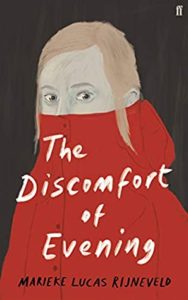
Marieke Lucas Rijneveld, The Discomfort of Evening
Before I opened novelist Marieke Lucas Rijneveld’s debut The Discomfort of Evening which won the 2020 International Booker Prize, I had heard she’s pinned the word “Be ruthless” above her writing desk. This book is an unflinching look at childhood pain, grief and cruelty. “I was ten and stopped taking off my coat,” says Jas in the opening line of the book, one of many compulsive behaviours following the death of her eldest brother Matthies who falls through the ice in a skating accident. Jas’ hypervigilance results in rituals, filling her pockets with mementos as a way to hold on to memories, keeping a drawing pin in her bellybutton and trying to make sense of another brother’s cruelties against small bodies. She is afraid to drop her guard over her remaining family: “I follow them about all day so that they can’t suddenly die and disappear.” While Jas’ self-sacrifice, like Iphigenia’s, feels like too much, we hear her wisdom as she tries to make sense of her experience. She addresses her two captive toads—“Dear esteemed toads”—telling them some day they’ll go back to the lake and float. “I’ll dare to take off my coat. Even though it will feel uncomfortable for a while,” but, she says quoting her pastor, “discomfort is good. In discomfort we are real.”

Anna Burns, Milkman
Milkman by Anna Burns won the 2018 Man Booker Prize. While not named, the setting is assumed to be Belfast Northern Ireland in the 1970s and 80s and reminds us, as in Iphigenia’s story, how war damages a collective psyche. Milkman explores the absurdity of childhood in the midst of armed conflict, told in a breathless stream-of-conscious gush by an unnamed narrator who goes simply by middle sister and who thwarts communal expectations because she’s not interested in babies or bombs, but books. ‘Longest friend’ advises middle sister against her ‘deviant’ behavior of walking while reading. ‘Are you saying it’s okay to go around with Semtex but not okay for me to read Jane Eyre in public?’ Middle sister asks. ‘Semtex isn’t unusual. It’s to be expected,’ longest friend replies. The narrator catches the unwanted attention of a paramilitary called Milkman who begins to stalk her. Later she will reflect. “I came to understand how much I’d been closed down, how much I’d been thwarted into a carefully constructed nothingness by that man,” she says, “by the community, by the very mental atmosphere, that minutiae of invasion.”
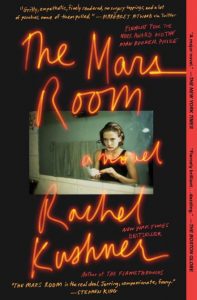
Rachel Kushner, The Mars Room
I read Rachel Kushner’s The Mars Room just after finishing Milkman and the sense of being beaten down by injustices, invisibility, of being crushed into a “carefully constructed nothingness” is painfully realised, and I was reminded of Iphigenia’s mother who in seeking justice for her daughter will take matters into her own hands and kill her husband. Romy Hall is serving two consecutive life sentences for killing her stalker, his history of harassment deemed inadmissible during her trial. Remembering The Mars Room, the strip club where she worked and met him, she says, “The life was being sucked out of me. The problem was not moral. It was nothing to do with morality. These men dimmed my glow. Made me numb to touch, and angry.” Although worlds apart, Kushner’s is an indictment of mass incarceration, the life sentence being born a woman into poverty in the United States inflicts and seems as absurd as Burn’s world of paramilitaries.
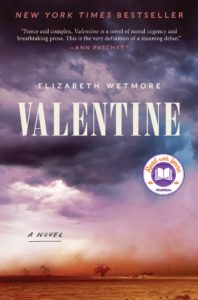
Elizabeth Wetmore, Valentine
Set in the oil fields of West Texas, Elizabeth Wetmore’s debut novel Valentine opens with a horrific crime against a fourteen-year old Mexican girl. Her brutal rape and beating divides the town as the community rallies around the young white rapist rather than his child victim and ostracizes those who protected the child and try to help her get justice. The only ‘I’ of the book is Mary Rose, a young mother who saves Glory and insists on giving her testimony even when she is terrorized by the rapists’ supporters and abandoned by her husband. Her narrative begins “I used to believe a person could teach herself to be merciful if she tried hard enough to walk in somebody else’s shoes, if she was willing to do the hard work of imagining the heart and mind of a thief, say, or a murderer.” Maybe she says. “But mercy is hard in a place like this.”
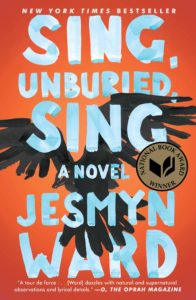
Jesmyn Ward, Sing, Unburied, Sing
Jesmyn Ward’s Sing, Unburied, Sing is narrated by thirteen-year old Jojo and his mother Leonie. Set on the Gulf Coast of Mississippi the novel centers on a road trip taken by Jojo and his three-year old sister Kayla with Leonie to collect their father from prison. The fantasy of a family road trip is soon dispelled by the diversion Leonie takes to pick up a package of crystal meth. Ward eschews the the epic and redemptive possibilities we associate with road trips. While Leonie can’t mother, we see through her narrative how she wants to. Kayla “sticks to him, sure as a burr,” she says, “… and I stand there watching my children comfort each other. My hands itch wanting to do something. I could reach out and touch them, but I don’t.” We see the failure of the adults in Jojo’s life who, like his mother, Jojo is haunted by ghosts. But his sister keeps him rooted. In the final image of the book he carries her home through the woods. “Kayla hums over my shoulder, says ‘Shhh’ like I am the baby and she is the big brother.”
***
